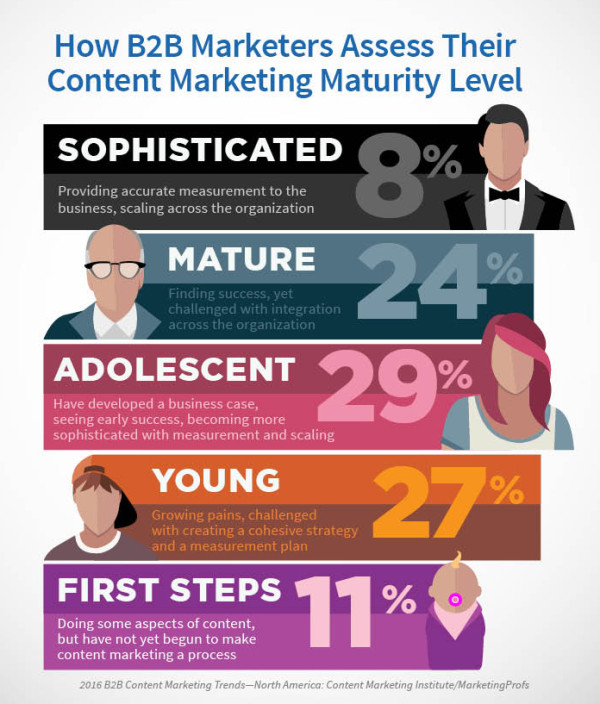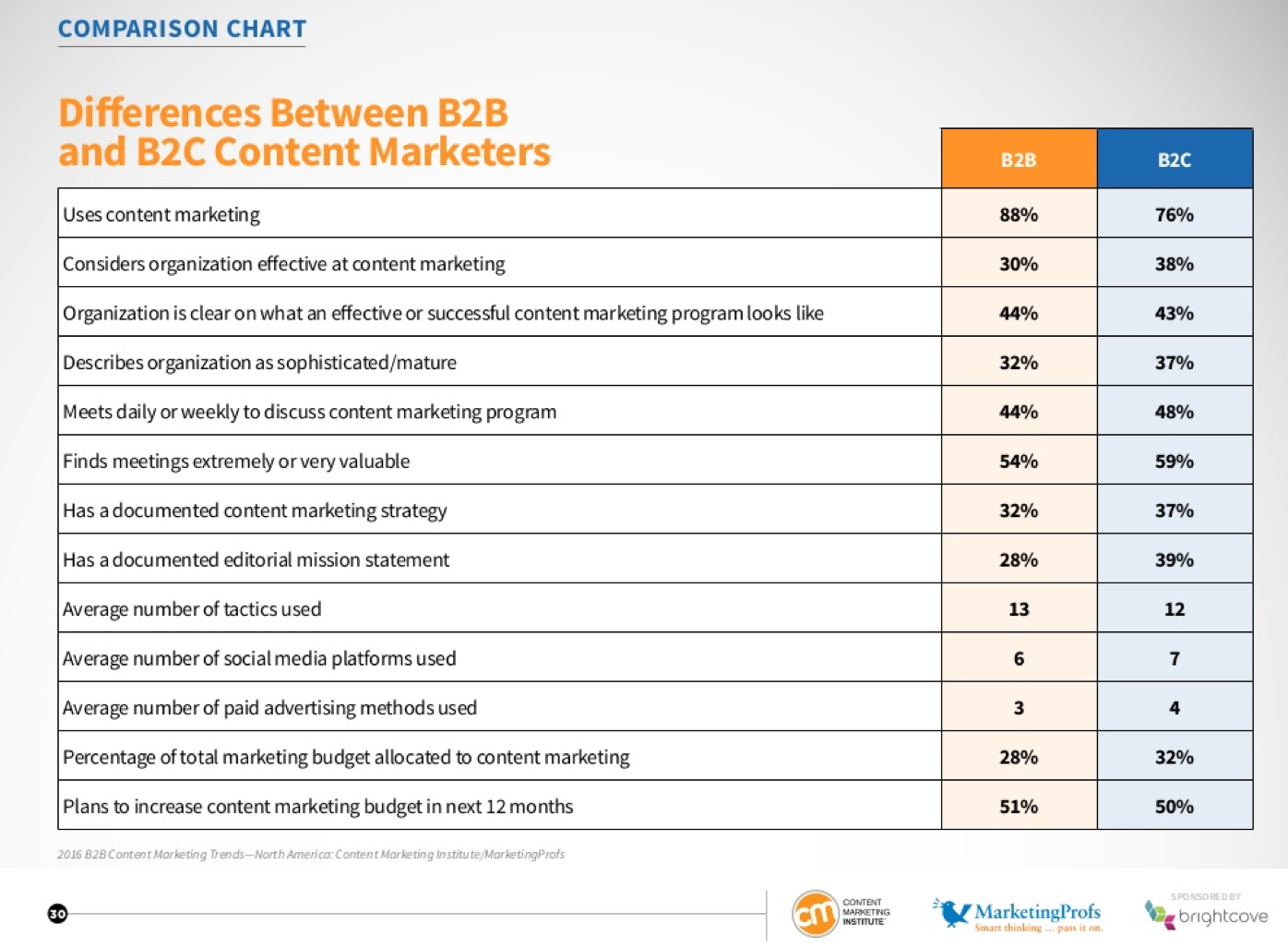We know the results of the sixth annual B2B Content Marketing –
Benchmarks, Budgets and Trends – North America report carried out by the Content Marketing Institute and Marketing Profs. The 2016 report revealed a number of new issues proving that in order to be effective, one needs a certain level of proficiency and maturity in practicing and thinking about content marketing (e.g. a documented strategy). Effects are hard to see for beginner marketers and those who don't have a clear vision of what they want to achieve.
For the first time researchers asked B2B marketers the following questions:
How would you assess the level of content marketing maturity in your organization? Five stages of development/maturity were set forth: sophisticated (proficient, highly developed; 8%), mature (24%), adolescent (29%), young (27%) and first steps (11%). Overall, 32% of B2B marketers say their content marketing is sophisticated or mature.

64% of the ‘sophisticated’ or ‘advanced’ group say content marketing used in their organization is effective, while among the ‘young/first steps’ it is only 6%.
How often does your team meet to discuss the progress/results of your content marketing program? 36% say weekly, and 8% of marketers say daily. 61% of the most effective B2B marketers meet their team – virtually or in person – daily or weekly. Are team meetings valuable in helping an organization to be more effective at content marketing? 54% say they are. Naturally, B2B marketers who meet daily or weekly are more likely to consider such meetings valuable.
Is it clear in your organization what an effective content marketing program looks like? As many as 55% of B2B marketers admit their organization lacks clarity about what a successful or effective content marketing program should look like. Meanwhile, companies that have clarity are also more effective. 79% of the most effective B2B marketers have a clear vision or a content marketing success, while 77% of the least effective marketers lack that clarity.
Does your organization have a documented editorial mission statement? It turns out 28% do, and the percentage increases along with effectiveness (48% of the most effective marketers have a documented editorial mission statement). 56% of those with a documented content marketing strategy also have a documented editorial mission statement. “Mission is the reason behind the company. It is why the company is doing what it is doing. So in simple words, a mission statement must answer the question: Why do we exist?” – explains Joe Pulizzi.
Other key conclusions:
- In the 2015 report 35% of B2B marketers had a documented content marketing strategy, this time the rate was 32%;
- 85% of the marketers say the most important goal of their activity is generating leads. For this reason the key metric, according to 31% of marketers, is the lead quality. An exception are small companies employing up to 9 people, which concentrate more on sales than the quality of sales leads
- the most important metric according to marketers in North America are: quality of leads, sales and conversion rate;
- the priority for the next years is – as usually – to create more engaging content
- when asked: “Which content offers does your organization ask its audience to subscribe to?” 72% say eNewsletter;
- among the social media platforms it has become a tradition for B2B marketers to rate LinkedIn as the most effective one (the 66% rate is very close to last year’s result); also, most marketers declare to use LinkedIn – as many as 94% use it for content distribution;
- among all the B2B marketing practices, the highest effectiveness rating is given to personal meetings/events (75%) – this way of building relations has not changed in several years, and the rate has even increased as compared to the previous year (from 69%). The runner-ups are webinars and webcasts (66%), followed directly by case studies.
The report also provides the research methodology and charts comparing answers given by B2B and B2C content marketers. It turns out they are very similar.

Read a
raport about content marketing in Poland 2015: What is the meaning of content in corporate and business communications?
